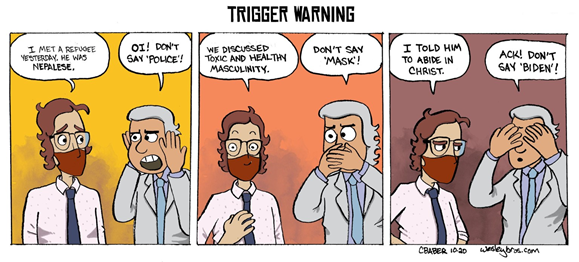We all remember the effect the secular “Christmas Season” has on us. Sometimes it is joy-filled. Sometimes it is a “bluer” effect:
- We move through the holiday without a special loved one. (“I’ll have a blue Christmas without you.” Thank you, Elvis)
- Or maybe you just find yourself feeling uneasy over conflict and dis-ease that seems rampant. (“So this is Christmas, what have you done?” Thank you, John Lennon)
But, remember last week? The Angel visited Mary and informed her of the great and troubling news – she would become pregnant and bear a child. That child would be Jesus, the Son of God – the one of whom the prophets foretold – Wonderful Counselor, Almighty God, the Prince of Peace.
Once she accepted the news, she ran to see Elizabeth, her cousin. She already knew that Elizabeth was also expecting. Gabriel told her!
39-45 Mary didn’t waste a minute. She got up and traveled to a town in Judah in the hill country, straight to Zachariah’s house, and greeted Elizabeth. When Elizabeth heard Mary’s greeting, the baby in her womb leaped. She was filled with the Holy Spirit, and sang out exuberantly,
You’re so blessed among women,
and the babe in your womb, also blessed!
And why am I so blessed that
the mother of my Lord visits me?
The moment the sound of your
greeting entered my ears,
The babe in my womb
skipped like a lamb for sheer joy.
Blessed woman, who believed what God said,
believed every word would come true! (Luke 1:39-45 – MSG)
In the conversation that follows, we find that Mary’s son, Jesus, will be more important than Elizabeth’s John, but there was no jealousy, only joy!
God is already at work to turn the world upside down! To overturn the world’s structures and expectations. God has chosen the lowly Mary and Elizabeth, to begin the transformation of the world.
Elizabeth has traveled through shame and despair. For a woman of her day, without access to education and career, child-bearing was seen as her ultimate purpose. Children were seen as a sign that God was blessing a union of man and wife. Elizabeth was “barren,” Bible language for “unable to bear children.” She must have felt that burden especially deeply – being the wife of a priest.
I wonder when it began to weigh on her faith? I wonder when the lack of children lead to a lack of faith?
I wonder when she began to fear for her husband’s reputation as a Man of God, being that his God wasn’t blessing his marriage?
Women were overlooked or ignored in biblical society. But, they’re the only ones we hear from in this story. Their words are powerful! Mary’s first words prompt an immediate, silent, response from Elizabeth’s unborn child. He leaps for joy! Even in the womb, he knows the significance of the child she carries in her womb.
The same angel, Gabriel, had visited Elizabeth and prophesied about her child, “even before his birth he will be filled with the Holy Spirit” (Luke 1:15). There it was! Prophecy fulfilled with a joyful leap in the womb. A “quickening” of life within another life.
Once again, a woman speaks – Elizabeth, becomes a prophet, proclaiming what Mary hasn’t had time to tell her: Mary is pregnant. Elizabeth not only prophesies but blesses. She begins a series of blessings that weave through Luke’s birth narrative and intensify its tone of joy, delight, and praise. Mary, Zechariah, and Simeon will all add their blessings to the chain, praising God for what God is doing at this moment and recognizing the privilege of being God’s instrument.
She too was an instrument of God’s great, joyful purpose!
Elizabeth and Mary, a barren woman and a young girl, overlooked and ignored in their world – but not by God! They have been chosen to fulfill ancient prophecy of “Messiah!”
Let’s look back at Henri Nouwen’s The Life of the Beloved. His purpose in writing was to describe how the Holy Spirit moves and manifests itself in our daily struggles.
First among those movements is a choosing – we are chosen by God. God has noticed us as unique among his creatures. Ironic because we’re all so normal, so humble, but God chosen us and expressed a desire to know us, to come close to us, and to love us.
Typically, a feeling of “chosenness” might make us feel “better than,” above others. Nouwen reminds us that God’s choice is not a “a competitive choice, but a compassionate one.” God doesn’t choose us because we are winners, but because he loves us.
Being chosen by God includes others! Elizabeth and Mary include one another in their joy! They, lowly and meek, were chosen by God! We are, too. But, how do we get in touch with this chosenness – especially when we are surrounded by rejection and hardship?
- We have to “unmask” (his word, not mine) the world for what it is – destructive and power-hungry. It does not tell us the truth about ourselves! We are God’s chosen even when the world does not choose us!
- Keep looking for people and places where “your truth is spoken.” Find churches, groups, communities that remind you that you are chosen! We’re broken and human; but, even us broken humans can point others toward the truth that all are precious in God’s eyes!
- Say “Thank you” to God constantly! Thank you for choosing me, God! Thank you to the friends who recognize your chosenness. Nouwen says: “Gratitude is the most fruitful way of deepening your consciousness that you are not an ‘accident’ but a divine choice.



